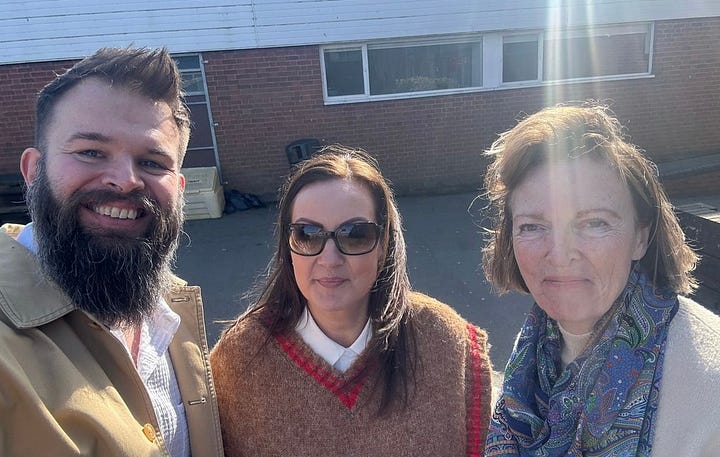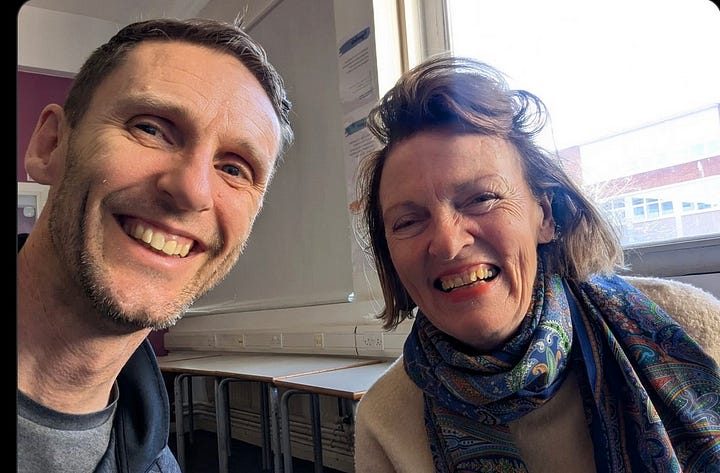

There’s nothing quite like seeing people in person! Lovely to see David Goodwin, Emma Emson and Chris Giles…
While PD provision is immeasurably better for having so many great resources online, there’s a particular joy in gathering together in person.
Claire Stoneman, Rachel Atton and Four Dwellings colleagues created a gathering of lovely people sharing lovely ideas. Here are the headlines of the ones I got to:
Religious Education - harnessing the multidisciplinary nature of RE with Daniel Martin. Considering RE through different lenses, for example theological, philosophical, cultural and historical, bring a depth of beauty and meaning to the subject. And it’s possible to do this with primary pupils!
Is poor behaviour linked to difficulty reading? James Murphy showed how reading problems affect behaviour, either through overt or internal disengagement. And that difficulties with reading extend well beyond the ability to decode texts in the classroom. Well worth checking out Thinking Reading.
Improving mathematical fluency with Jess Rennie. We often feel we have to crack on with the content because there’s so much to get through. However, this is at the expense of pupils really getting to grips with the basics. Jess showed how by building in cumulative steps, regularly tested improved motivation engagements and results.
Centering student voice through purposeful discourse. Getting the chance to see great work in practice is uber helpful: we can immediately see make the connection between the theory and practice. Steve Chiger is a genius at summarising the research and then providing classroom examples. Habits of discourse is absolute gold. Well worth checking out Steve’s resources and books. And I’m indebted to Steve Willshaw for introducing me to Steve’s work and having these two great conversations on Love and LIteracy for Myatt & Co (£).
The knotty issue of KS3 assessment was tackled by Isaac Moore. He asked the pertinent question whether the data and reporting tail was wagging the subject assessments dog in schools? There was a groan of agreement in the room. Then Isaac walked us through the way he has worked to get a sensible system in place in his context.
I talked about how we might reframe Key Stage 3 as the ‘intellectual powerhouse’ of the secondary school. Based on the findings from the ‘Faster Read’ from the University of Sussex, I make the case that it’s possible to underpin the curriculum at KS3 with rich, demanding texts.
It’s already working in primary, with over 5k teachers using The Teachers’ Collection and there’s definitely demand for secondary! You can find my slides here.
Until next time
Mary




Sounds so fun! I’d have loved to attended sessions on #2 and #3!